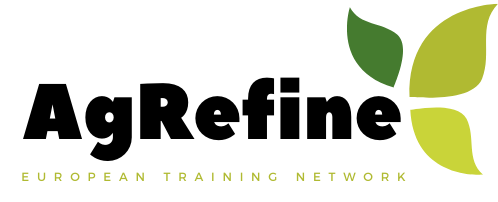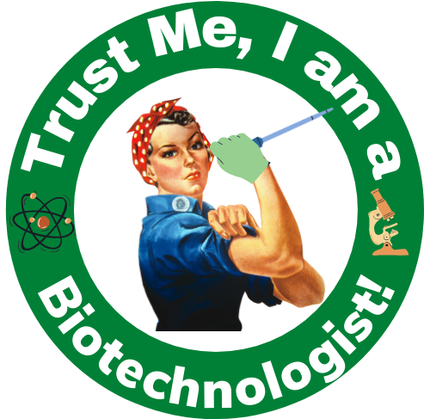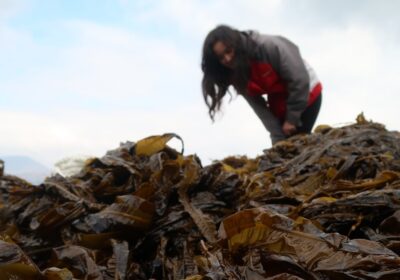After high school, the moment arrived for me to choose a university. During the university orientation days, I realised I was drawn to science subjects and among them, I was struck by Biotechnology. So, in the end, I applied for the Biotechnology School, but I didn’t know exactly what I was getting myself into.
What is biotechnology and what does a biotechnologist do?
Biotechnology is an applied science and differs from pure science like mathematics, physics, etc because it takes advantage of the acquired knowledge on pure science to find practical applications and solutions for our problems. Briefly, Biotechnology is the engineering and use of biological processes, organisms or living systems to obtain goods or services useful to satisfy the needs of society and to improve human lives. This was fascinating and seemed something innovative to me. During my first year, I saw some examples of the many applications that biotechnology has:
- make bacteria produce insulin, rather than extract it from pigs;
- grow plants that resist harsh climates or that do not require the use of herbicides and pesticides;
- use microorganisms to clean up polluted sites through a process called bioremediation;
- obtain substances and molecules through a biological process rather than through chemical synthesis or produce materials replacing fossil fuels as raw material.
At that time, it sounded like science fiction to me, but it was something that was happening, and I wanted to be a part of it and make my career out of it.
What I didn’t know was that a biotechnologist is a very complex, interdisciplinary figure, who needs very heterogeneous skills. Obviously, to be able to use and get the most out of biological organisms, processes and systems, s/he must have an excellent knowledge of biology. The wider the better, but on the other hand, a biotechnologist also needs a lot of specific knowledge.
It must be said that compared to a few decades ago, when there was still no technology available to access certain information, today there is an overabundance of data, so much so that disciplines such as genomics, transcriptomics and proteomics have taken hold. These data are useful for a biotechnologist, but they also require competence in managing certain platforms, databases and software. A biotechnologist, in fact, needs to know how to align DNA sequences, how to do homology research or how to use the tools for predictions of protein structures, cellular bioinformatics and immunoinformatic. For this reason, s/he has to have some understanding of bioinformatics and, moreover, having some skills in computer programming is a huge advantage.
While doing research, a biotechnologist collects a large amount of data and when publishing s/he has to prove her/his data is statistically relevant, so s/he should be familiar with some biostatistics tool as well.
Collaboration is also a big part of this job because there is often an interaction with experts from other fields and together, they dive deep into the details. Communication between these figures can be difficult because there is no common language and there is a lot of difference between the technical terminology they use. I will give you an example. For a chemist, a catalyst is any chemical capable of causing a decrease in the activation energy required for the reaction to take place. To put it very simply, it is a substance that speeds up the reaction or that allows the reaction to take place. The biotechnologist often wants to use an organism or a protein called an enzyme as a biocatalyst and this is a complex system that has quite different implications than using a chemical and poses new challenges. However, a biotechnologist has a basic (or even extensive) knowledge of multiple scientific fields to achieve a fruitful collaboration.
The upscaling of a production process developed by the biotechnologist to an industrial scale is a difficult task. The microorganism used in this process has to be grown in a bioreactor, which is a huge tank in which the growth of the microorganism can be regulated. During the upscaling, an engineer will show the biotechnologist block or process flow diagrams, which are schematics of the production process. S/He will also mention mathematical modelling, simulation of the process operation, energy and mass balances, hydraulic retention time, volumetric flow rates, and other parameters. Even if these may sound new to the biotechnologist, they are fundamental for the success of the process.
After finalising the industrial production process, the biotechnologist wants to sell her/his product. Therefore, s/he will also need some economic knowledge and skills, in order to put the result of her/his work on the market. Hence, s/he should know the organisation and operation of an enterprise, with its economic and financial dynamics. Furthermore, the biotechnologist needs to know the technological cases to plan a business strategy, a business model, to estimate markets and competition and how to manage human capital.
In the most favourable scenario, the product the biotechnologist developed is a new product, so a real invention! In this case, s/he wants to own the rights deriving from her/his intellectual work and property; in other words: to patent the product. That is why s/he needs to acquire knowledge on legislation and the content of the national, European and international rules governing the acquisition and protection of intellectual property rights, both in the form of industrial secrecy and in the form of patents involving biotechnological inventions.
Furthermore, biotechnology also addresses sensitive issues from an ethical point of view. For example, the microorganism that is engineered by a biotechnologist now, could be used as a biological weapon if it falls into the wrong hands: would it still be ethical to do this kind of research? Is it ethical to genetically modify human embryos? How can one use laboratory animals? Answering this kind of questions is not easy, but bioethics is something that a biotechnologist must take into consideration and on which s/he needs to reflect and take reasonable choices.
Last but not least, like scientists in every field, to be a successful biotechnologist, s/he must also have good skills in all form of communication. You can reach all of your goals and find the impossible, but you have to know how to tell others what you did in a complete and consistent way.
My own story
As we saw, being a biotechnologist is not easy at all, but luckily, I have a huge passion for this world. At present, my biotechnological challenge is the development of a biorefinery technology within the Agrefine project. Starting from low value agricultural and non-agricultural feedstocks, we want to obtain products of higher commercial value. The goal is to make a circular and sustainable production process by using among other things genetically modified microorganisms (GMOs) that we obtain through genetic engineering. Fortunately, we are 15 Early Stage Researchers (ESRs) in total, working on this very ambitious project, each one with a different background. As I already mentioned, the biotechnologist tries to have a working knowledge in many areas, but s/he cannot achieve everything alone. This is why collaboration between different researchers is essential. I feel that I still have a lot to learn and a long way to go but I am convinced that at that time, six years ago, I chose the right path for me that enabled me to embark on this wonderful project.




